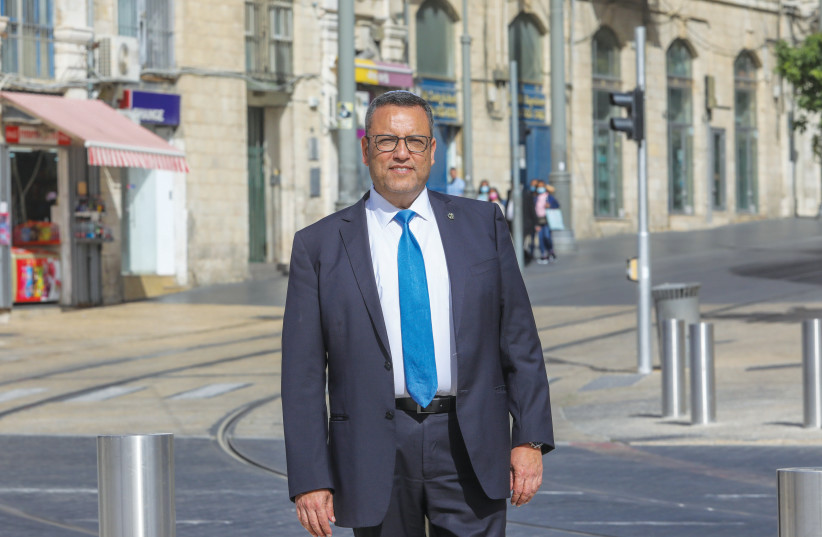Two city councilors launched their election campaigns this week.
Contrary to the expectation of many of their supporters, the two – Laura Wharton and Yossi Havilio – have failed to unite and run together. When reviewing their platforms, it is difficult to discern any fundamental differences in the issues that they want to promote in the next city council.
Havilio, currently a deputy mayor, launched his campaign by stating that “only a Zionist-liberal majority in the city council will prevent Jerusalem from becoming Bnei Brak.” His Save Jerusalem list operates on the platform that Jerusalem should remain free from religious coercion and not be overly influenced by the haredi factions; rather, it should be pluralistic and focused on Zionist policies.
Wharton, who launched her new Jerusalem Democratic list, said that the core of her campaign is ensuring freedom, by keeping streets open on Shabbat, maintaining cultural institutions and preventing gender segregation.
For several weeks, those promoting a pluralist list thought that the two would run together, in order to balance the large presence of haredi factions, and that they would later be joined by other pluralist forces – perhaps even the Hitorerut faction. There were endless meetings and talks, but ultimately the two announced they were indeed running separately – at least for now. The unpleasant impression? Egos stood in the way.

With four months before the local elections, Havilio has said he hopes to harness the protest movement against the government’s judicial reform plan and return the Zionist-liberal majority to the city council. In his published plan, he openly confronts Mayor Moshe Lion, who “has given up on the secular and traditional in Jerusalem.”
Wharton is not mobilizing the judicial reform protests in her campaign, and avoids blaming Lion for the situation. Her decade of sitting on the city council may have helped her understand that not everything is in the hands of the mayor. She realizes that the support of as many non-Orthodox factions as possible is key to achieving a balance between all Jerusalem public representatives.
Mayor Moshe Lion's alliance with Jerusalem's haredim remains strong
Meanwhile, in haredi circles, everything indicates that the alliance between the ultra-Orthodox parties and Lion is again on the agenda. A leader in the sector, Rabbi David Avraham, expressed support for “Rabbi Lion,” clearly stating expectations ahead of elections: “We have been granted five years [the mayoral term] for the world of the Sephardic Torah in Jerusalem. We have gratitude for Rabbi Moshe Lion. We all pray that God will give him strength for many more years.”
Lion, who will probably be elected for another term, is very interested in introducing his own faction, which will include representatives of the city’s non-Orthodox public. He has even committed to including an equal number of women to men on his list, in an effort to attract more pluralistic voters.
However, a division among representatives of the pluralistic public will make it very difficult for him to fulfill this ambition. ❖
